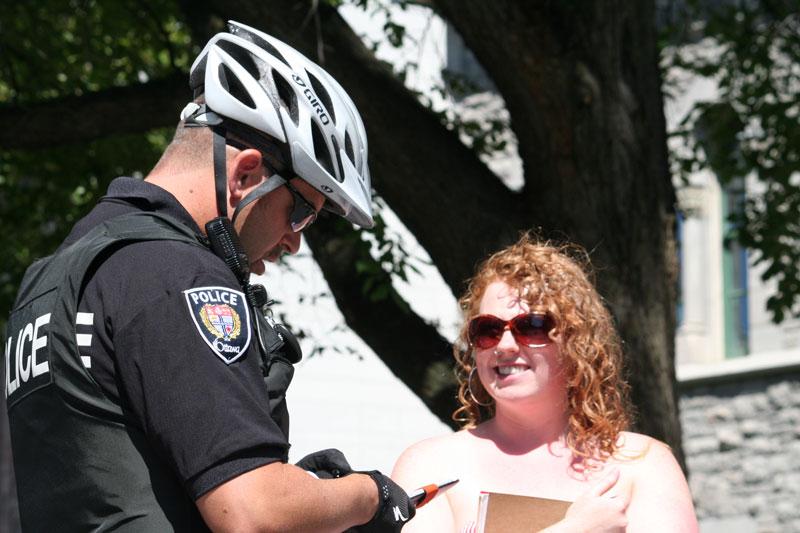This year’s Ottawa Dyke March was a celebration, a peaceful protest — and a political statement, because of the planning committee’s decision to march without police presence.
Sam Whittle is a member of the committee.
“We felt that paying the police to be part of our march was against our mission and values and against the things we stand for,” Whittle says. “We also thought that it would be really empowering — as the Dyke March is the political aspect of Pride — to walk by ourselves without police, to be able to know that we can do that, to be able to reclaim our streets in a really positive way.”
The march did reclaim the streets, but with unwanted police presence, which was, by Whittle’s account, not positive nor pleasant.
“They were generally awful, emphasizing that they had the authority, that we didn’t have any authority. It was all very negative and hostile, which is especially frustrating to us because we went into it in a positive way, and they definitely responded in the complete opposite way,” she says.
According to Whittle, at least one of the marshals was given a ticket. Whittle was told that she herself might, as one of the organizers, face charges and that her refusal to tell the police officer her date of birth would be noted in her file.
This week the committee wrote a letter to the Ottawa Police Service (OPS) board and to the chief, Vern White, expressing their concern about “hostile police actions at the Dyke March.”
According to Staff Sergeant John Medeiros, from the diversity and race relations division of OPS, who has been asked to assist in the case, the complaint has been registered and an inquiry into the incident opened.
Medeiros says that he anticipates holding a meeting with the officers concerned after more information is collected. He also says that he will contact the Ottawa Police Liaison Committee for the Lesbian, Gay, Bisexual and Transgender Communities to inform them of the incident and that he hopes to meet with the Dyke March planning committee.
He reiterated that a police presence is obligatory at all rallies and marches.
“It is a requirement of the organization. What we have to do is keep people safe,” he says.
Whittle claims that the Dyke March was a success.
“Our decision was completely validated for me during the march and after the march. People were happy about the decision we made, and so many people came up to us and said things like ‘I’ve never been in a march that felt that way before,'” Whittle says. “So, it felt really good. There was a lot of support for the decision and a lot of really positive feedback about it.”

 Why you can trust Xtra
Why you can trust Xtra


